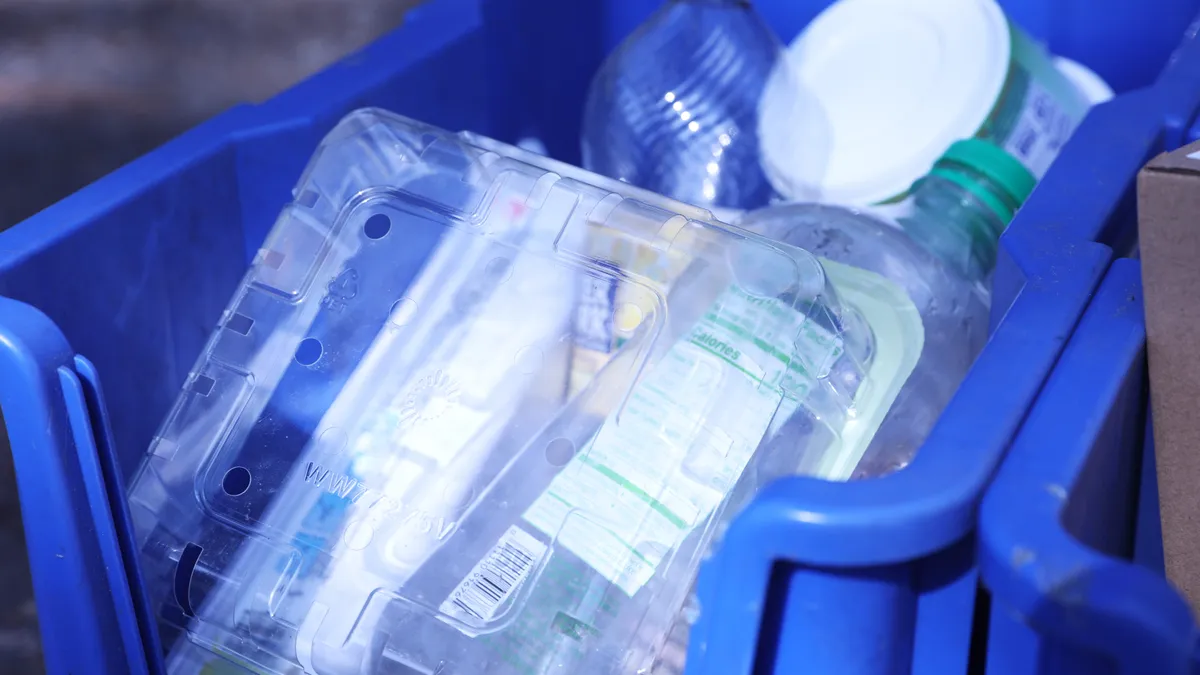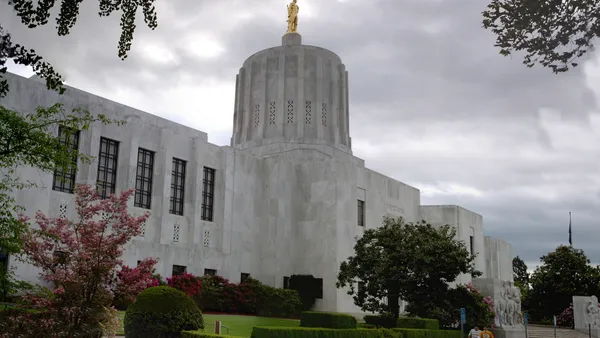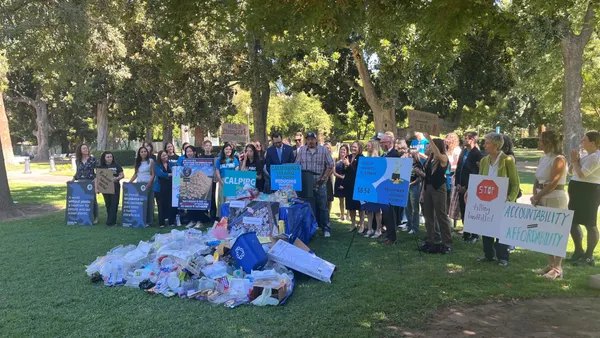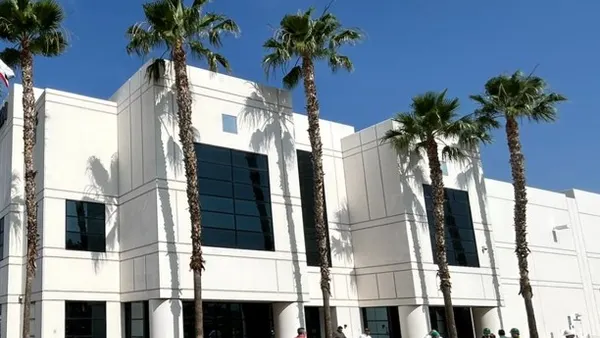Dive Brief:
- Momentum behind extended producer responsibility (EPR) laws for packaging is growing in multiple states, per comments at this year's virtual Northeast Recycling Coalition conference. Officials and EPR proponents from Maine, Massachusetts, New York, Vermont, Connecticut and Rhode Island all spoke to increasing interest.
- Several cited Maine's bill (LD 2104), in limbo due to the pandemic, as a policy blueprint. Massachusetts and New York have considered bills recently, while Connecticut Department of Energy & Environmental Protection (DEEP) Environmental Analyst Tom Metzner said his state is busy seeking buy-in from municipalities.
- Motivating factors include pandemic-induced budget cuts facing local governments, with state attention driving more business engagement. "The industry is coming around" on EPR, said Metzner, adding "I think the states are getting weary of this manufacturer position that 'no it doesn't really work,' or 'let's keep talking.'"
Dive Insight:
Viewpoints around EPR legislation are evolving during an unprecedented year that has upended many state legislative sessions. Actual progress on bills has been limited — in addition to Maine's stalled effort, California did not pass its legislation for the second year in a row. But the waste industry has increasingly discussed EPR as a possibility it may have to contend with based on state trends.
"In some regions, recycling costs have eclipsed disposal costs," said Josh Kelly, materials management section chief for the Vermont Agency of Natural Resources, adding "EPR programs are shifting that dynamic of who pays."
Vermont, Washington and Oregon are among states that have recently considered EPR, although in past years such legislation has failed to gain traction in states like Connecticut and Rhode Island due to a lack of producer involvement and other stumbling blocks. DEEP's Metzner said his state remains "very interested" in packaging EPR and sees municipalities as a good potential ally.
Sarah Nichols, who directs the Natural Resources Council of Maine's Sustainable Maine program, said momentum for EPR remains high in her state despite the setback for LD 2104. She also noted growing industry interest in the topic, highlighting recent reports by groups like The Recycling Partnership (TRP) as an indication of the shift underway in the business sector on issues like recycled content minimums and a disposal surcharge.
Still, Nichols emphasized EPR as separate from those proposals and said the TRP report "puts too much onus on taxpayers," even as she said engaging with industry remains a priority for her organization. "[We are] working hard on educating Maine businesses ahead of the upcoming session," Nichols said, referencing work to bolster support for EPR.
Other states weighing EPR include Massachusetts, which had two product stewardship bills under consideration in its latest session, H750 and H745. Kirstie Pecci, Zero Waste Project director for the Conservation Law Foundation, said she has followed conversations around the issue, including debates over whether systems should direct control more into the hands of producers, like in the Canadian province of British Columbia, versus local governments, as is the case in the province of Québec.
Organizations like the Institute for Local Self-Reliance have pushed back on a producer-centric approach and Pecci shared that view. "It makes great sense to give a lot of power to the municipalities and to the state governments and agencies," said Pecci, who added she is hopeful about some movement on the issue next year.
New York has also faced some challenges in passing its EPR legislation. New York Product Stewardship Council Chair Andrew Radin said two proposed bills, S7718 and A9790, would need to be made complementary to have chances of passing. The latter excludes printed paper and would cover plastic packaging starting in 2023, with paper packaging covered by 2026. The former is more sweeping and applies to plastic, glass, metal and paper. No action is anticipated this session, but Radin said his organization is urging Gov. Andrew Cuomo to include EPR packaging in the next executive budget bill.
"We've been told this will be a legislative priority for 2021," he said.
State momentum comes amid shifting waste industry perspectives and some national level movement due to the Break Free From Plastic Pollution Act, which includes packaging EPR. While the National Waste & Recycling Association remains resistant to EPR, the group is now advocating for the industry to "have a seat at the table" if such legislation does pass. Recology and Republic Services also notably backed the EPR effort in California that did not pass this year. Waste Management is also evolving its stance on EPR, per a recent report.
Metzner of DEEP said he anticipates further conversations with business interests will be key to any final EPR efforts.
"They need to be at a table," he said. "They're right as business people to be concerned about protecting their assets."










